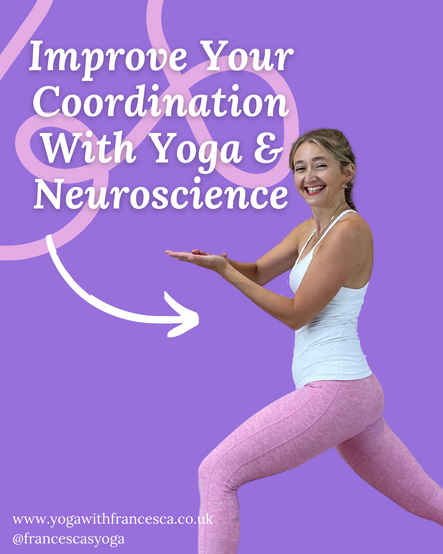Improve Your Movement & Use Your Mini Brain 🧠
- Nov 4, 2022
- 3 min read
What is it?
The cerebellum (Latin for the “little brain”) is located near the brainstem at the back of the brain. It even looks like a miniature brain! (See the picture below.)
It only accounts for 10% of your brain's mass, but it contains 80% of the brain's neurons. It handles complex movements and functions, including motor skills such as accuracy, balance, coordination, and posture.
How can you stimulate the cerebellum?
You can target joint-rich areas (where there are a high amount of mechanoreceptors) with:
Load (Adding weights/resistance through bands)
Speed (Increasing or slowing the movement down)
Accuracy (If you close your eyes, can you touch the tip of your nose with your ring finger?)
Complexity (Making your movements more complex and intricate)
Perturbation (Imagine someone pushing you or doing yoga somewhere windy!) & Error Correction (Being able to do a movement again until you get it 'right')
Functional Range Conditioning Method (Think CARS - Controlled Articular Rotations)
Co-ordination (How's your rhythm? Can you
Extension (Think backends and reach arms up)
Novelty (New movements)
Maximum ROM
How can you assess your cerebellum?
There are many ways to test different aspects of your cerebellum:
To test your balance, stand in Tadasana with your feet together. Notice if you're swaying or wobbling. To make this more difficult, close your eyes, or step one foot in front of each other (like you're standing on a tightrope).
In Warrior II, you can test your accuracy by touching the tip of your nose with the end of each finger extending the arm out each time (eyes open or closed) and then try to challenge yourself by increasing the speed.
Try clapping in a rhythm or clapping and flipping one palm up and down (alternating pronation and supernation) as fast as you can to test your coordination (this is something I am working on as I find this so challenging!).
How can this benefit me?
The cerebellum helps you to do complex and daily functional movements. It ensures you maintain balance, coordinate smooth eye and muscle movements, and new studies show that the cerebellum has some role in thinking, including processing language and mood.
Also, it adapts and fine-tunes motor programs to make accurate movements through a trial-and-error process, for example, learning to ride a bike, catch a ball or play a musical instrument.
That’s not all! It also helps with reflexive stability and posture! I always blabber on about how our core is reflexive. So imagine how brilliant it would be if we never had to think about our posture, that our brain automatically places us in the best posture for our body.
Also, it increases ROM as it sets the extensor tone of our muscles (stability around our joints). You will notice greater ROM if the dosage is correct.
As we work on the cerebellum and you stimulate your mini brain in our workshop, you may notice considerable improvements in your yoga practice and daily life.
Join me in a playful 2-hour yoga workshop using functional neurology to improve your accuracy, balance and coordination. The workshop is in a beautiful venue in Marlow with free off-road parking. Complete with a cup of herbal tea and a complimentary handmade gift.
This workshop is perfect for those with some yoga experience.
If you join with a friend, you both get £5 off each - using the code 'DOUBLETROUBLE' on checkout.











Comments